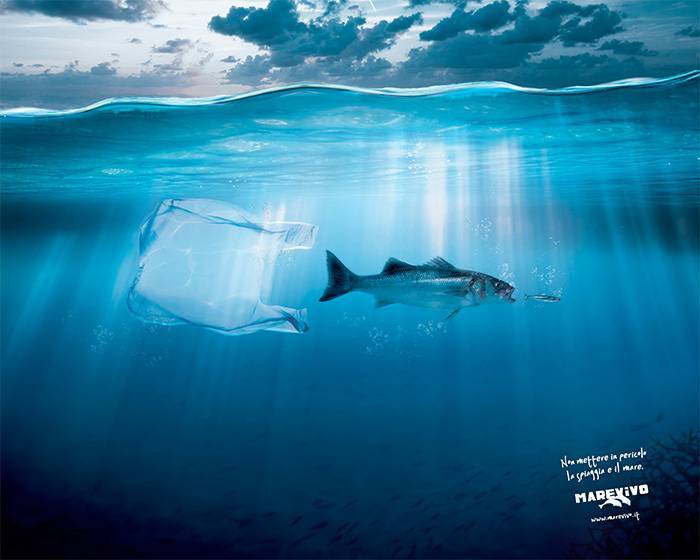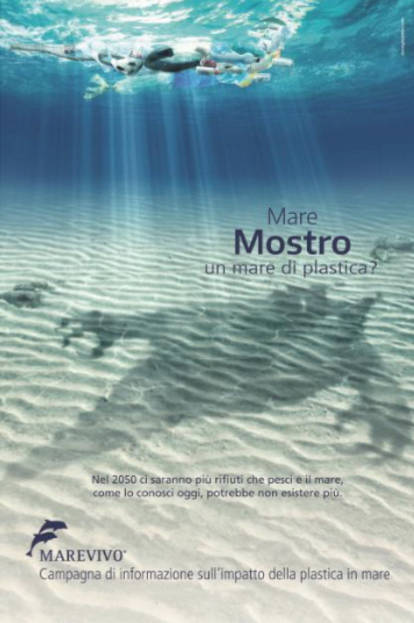How an Italian law for the protection of the sea was born in Washington at the NIAF convention
Mr Giugni would you tell us the peculiar story of this new Italian law and its relationship with the Italian American community?
Last October, at the invitation of i-Italy we { Marevivo} had the pleasure to participate to the annual convention of the National Italian American Foundation in Washington and to meet some leading representatives of the Italian-American community. Among them were the President of NIAF John Viola and its Executive Vice President John Calvelli.
After exchanging a few words with Mr. Calvelli I discovered that we had many things in common, in particular the constant battle for the protection of our beloved sea from the invasion of plastics — in Italy Marevivo has been in the frontline of this battle for 30 years. And, most importantly, Mr. Calvelli introduced us to the problem of the microbeads.
What are the microbeads?
They are tiny particles of plastic that can be found in thousands of personal care products sold around the world. Hardly visible to the naked eye, they flow straight from the bathroom drain into the sewer system. Wastewater treatment plants are not designed to filter out microbeads and that is the main reason why, ultimately, they contribute to the Plastic Soup swirling around the world’s oceans. Sea creatures absorb or eat microbeads and that’s how they are passed along the marine food chain. Since humans are ultimately at the top of this food chain, it is likely that we are also absorbing microbeads from the seafood we eat. Microbeads are not biodegradable and once they enter the marine environment, they are impossible to remove. We were shocked by this problem and started looking into it more closely.
Isn’t there any legal protection against the use of microbeads in cosmetics products?
In the U.S. there is! Mr. Calvelli’s organization managed to put together a legislation that bans the microbeads from all products sold in the New York State and at the end of last year president Obama made it a federal law! Mr. Calvelli sent us the blueprint of the U.S. law as well as the media and scientific background that was put together by his organization.
This made us understand the importance of raising awareness on this issue in Europe, where no such law exists. So, back in Rome, we put together a team of experts, legislators and scientists — the Blue Factory of Marevivo — to study the best way to propose a law that would ban microbeads in mass market cosmetics in Italy and hopefully all Europe.
And what came out of all this?
In a few months the Blue Factory, led by Prof. Ardizzone of the University La Sapienza of Rome, drafted a law proposal inspired by the American law. It will be officially presented in Naples at on June 29. The event will take place on board of the Italian Navy boat Amerigo Vespucci. The president of the Environmental Committee of the Italian Parliament Ermete Realacci will be present together with the undersecreatry for the Environment Silvia Velo and the undersecreatry for Justice Cosimo Maria Ferri. With such an authoritative backing that will be the kick-off event to our European-wide campaign to raise awareness on the impact of plastics on our sea.
So that encounter in Washington proved really important...
It was of paramount importance! It allowed us to focus on a very important aspect of the struggle for the protection of the sea and I want to thank Mr. Calvelli for opening our eyes and helping us to pave the road to this new crucial battle.



































i-Italy
Facebook
Google+
This work may not be reproduced, in whole or in part, without prior written permission.
Questo lavoro non può essere riprodotto, in tutto o in parte, senza permesso scritto.